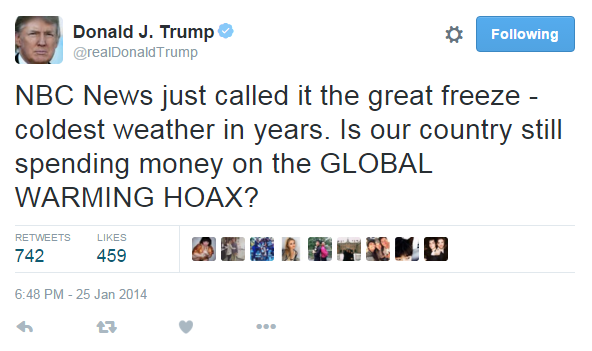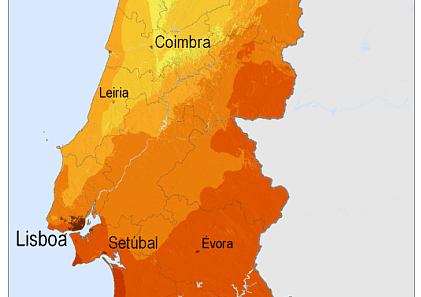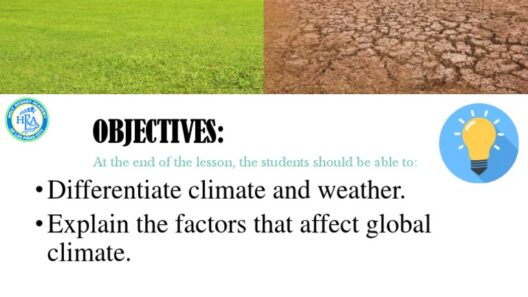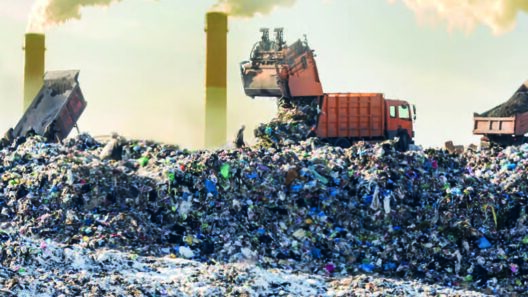In the intricate tapestry of contemporary discourse, few threads have woven as much controversy as climate change, a phenomenon that has captured the global imagination and provoked a spectrum of responses from various leaders and thinkers. One of the most persistent figures in this debate is former President Donald Trump, whose rhetoric has oscillated between skepticism and outright denial. The crux of the matter rests on whether Trump truly labeled climate change as a hoax, and if so, what this signifies in a broader context.
At the heart of Trump’s statements is a particular phrase: the suggestion that climate change is a “hoax.” This incendiary term evokes visceral reactions, reminiscent of a thunderous drumbeat echoing through a crowd, compelling attention and stirring passions. When examining the moments in which Trump deploys this rhetoric, one must consider the underlying motivations. The former president’s assertion that climate change is a “hoax created by China” serves not merely as an environmental commentary; rather, it encapsulates a broader geopolitical narrative aimed at casting doubt, fostering distrust, and galvanizing his base.
To dissect his words requires an examination of context. In 2012, during a Twitter storm that echoed through the digital corridors of debate, he boldly proclaimed that global warming was a “hoax.” This declaration was not an isolated incident. It represents a thread within a wider tapestry of environmental rhetoric characterized by skepticism towards scientific consensus. Such skepticism can be likened to a tempestuous sea, with waves of misinformation crashing against the shores of established scientific understanding. Trump’s pronouncements often seem designed to resonate with a specific audience, one that feels marginalized by prevailing environmental narratives.
In the political arena, where the stakes are perpetually high, Trump’s climate skepticism manifests in various forms. Many perceive his claims as a clarion call for a particular brand of populism, one that positions economic priorities above environmental concerns. This perspective reframes climate change from a global crisis into a mere talking point, allowing supporters to dismiss extensive scientific research as overly alarmist or politically motivated. The ramifications of this mindset ripple outward, influencing policies and public perception alike.
Contrast this with the reaction from the scientific community, which finds itself ensnared in a surreal dichotomy. While the overwhelming majority of climate scientists advocate for urgent action, articulating the dire consequences of inaction, Trump’s rhetoric can be viewed as an insidious adversary, sowing seeds of doubt among the populace. It is imperative to note that his statements do not exist in a vacuum; they infiltrate the dialogue surrounding climate negotiations, policy formulation, and public awareness. Every dismissal of scientific consensus reverberates, obstructing progress and muddying the waters of an already complicated issue.
As the debate unfolds, Trump’s portrayal of climate change as a “hoax” has evolved, shifting from an outright denial to a more nuanced skepticism. His assertions often include the caveat that while he acknowledges weather patterns and cycles, he vehemently opposes the idea that human activity is a driving force behind climate change. This position, though cloaked in a veneer of rationality, raises profound ethical questions about responsibility and the social contract. As stewards of the Earth, do we not owe it to future generations to confront the realities of our changing climate head-on?
The metaphorical lens through which one views Trump’s rhetoric reveals deeper societal fissures. On one hand, he embodies a constituency that fears economic disruption and job loss tied to environmental regulations. This fear morphs into an emotional barricade, a fortress of denial protecting entrenched interests in fossil fuels and industrial outputs. On the other hand, the emerging voices of youth climate activists, emblazoned with urgency and a refusal to be silenced, are a clarion call for action that starkly contrasts with Trump’s approach. They advocate for ecological responsibility, entreating decision-makers to recognize the undeniable science and the dire implications of inaction.
The dichotomy encapsulated in this discourse is manifestly profound: loyalty to fossil-fuel-driven economies versus stewardship of the planet. With each tweet and each public appearance, Trump strikes a discordant chord that resonates with some while alienating others. This dynamic is not merely political; it is an echo of humanity’s struggles to reconcile economic ambitions with ecological imperatives.
In conclusion, the question of whether Trump called climate change a hoax transcends a mere yes or no answer. It invites an exploration of the multifaceted landscape of environmental discourse, challenging us to confront the implications of his rhetoric. As disparate factions continue to clash over the narrative surrounding our planet’s health, we must strive for a synthesis of ideas that recognizes the urgency of climate action while considering the socioeconomic realities that many face.
Ultimately, the legacy of Trump’s statements and the chaos they incite will persist in the annals of climate discourse. The challenge lies ahead: to elevate the conversation, to transcend the partisan divide, and forge a collective path toward a sustainable future. The stakes could not be higher, for as we teeter on the precipice of climate catastrophe, we must unite the multitude of voices to form a symphony of action, rather than a cacophony of division.








